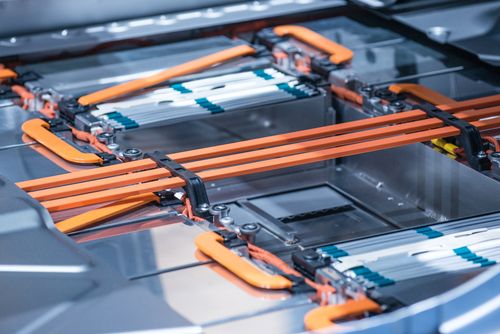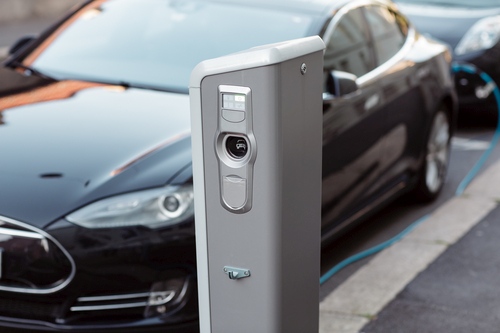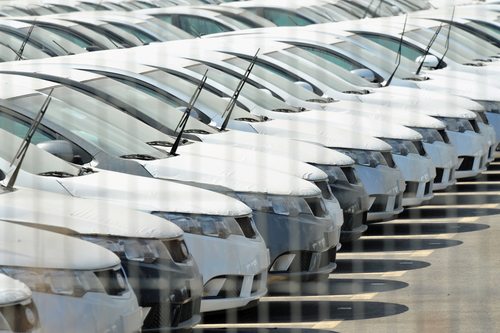China introduces new measures to boost car sales
A meeting of government officials chaired by Premier Li Keqiang in November 2020 laid out numerous new measures to boost car sales. Specifically, the council agreed to stabilize and increase the number of car sales, allow local authorities more leeway in restrictions on new car purchases, and increase the current quota for new car registrations. In addition, sales promotion measures for new vehicle purchases in rural areas and a scrappage premium are planned. Where circumstances permit, buyers are to be encouraged to opt for commercial vehicles with a gross weight of less than 3.5 tons and passenger cars with an engine displacement of less than 1.6 liters.

In addition, the government encourages the purchase of new vehicles if the previous one only meets Chinese emission standard 3 or below. In this way, the government wants to phase out older and polluting vehicles more quickly. To improve the environmental record, more parking lots with charging stations for electric vehicles and plug-in hybrid vehicles are to be built. As early as the beginning of 2020, the Chinese central government as well as local authorities decided on numerous support measures to stimulate the automotive market.
According to the China Automobile Manufacturers Association (CAAM), approximately 2.55 million vehicles were produced in China in October 2020, 11 percent more than the previous year. Sales in the identical period totaled 2.57 million, up 12.5 percent. As of October 2020, the amount of cars produced and sold has been growing steadily for 7 months. According to estimates by Jiang Xueping, an analyst at Orient Securities, passenger car sales in China will reach double-digit growth in 2021. Jiang observes that demand has stabilized recently and companies in the vehicle manufacturing, parts and components sectors can benefit. Therefore, China can be expected to continue to provide solid conditions for the automotive industry in the future. If you need CCC certification in the automotive sector, China Certification is an excellent partner for you. We have been advising leading automotive suppliers and vehicle manufacturers on their CCC certifications for years.
For more information on how CCC certification, the CCC Self-Declaration and voluntary CCAP or CQC certification may affect your company, or for more information about CCC certification in general, the process, and the associated costs, please visit our website and our News Section where you will find current updates twice a week.
Please do not hesitate to contact us for further details and consultation. You can contact us via e-mail, or call us (UK: +44 2071931135, Rest of Europe: +49 69 2713769150, US: +1 773 654-2673).
Please don’t hesitate to also use our chat-window in the bottom right corner if you have any questions. (Please check your browser settings if you can’t see the window)
You can also check out our free CCC-Brochure, which can be downloaded right here as a PDF file or you consult our book (in English) “A Brief Guide to CCC: China Compulsory Certification”, which can be found directly here on Amazon.
Here you can download our brochure about the CCC Self-Declaration.
Here you can download our brochure about the voluntary CCAP or CQC certification.
Three Chinese companies join forces for new high-end car brand
Contemporary Amperex Technology Co Ltd (CATL), a Chinese battery manufacturer, is teaming up with Huawei Technologies Co, a technology giant, and Changan Automobile, a major automaker, to develop a new high-end car brand. This move is an attempt to take advantage of the current unprecedented opportunities for electric vehicle development and manufacturing in China. Changan Automobile Chairman Zhu Huarong said during a television interview that the planned collaboration will include a model platform for autonomous electric vehicles, a range of accessories, and items for daily use. Zhu did not disclose the amount invested in the new project by the companies involved. However, he clarified that the development phase of the first product has been completed and they will soon start mass production.

Earlier this month, the Chinese government unveiled the current development plan for electric cars and vehicles with alternative drives. The plan covers the period from 2021 to 2035 and paves the way for China to become one of the most important countries in the field of alternative drives. Zhu said they will support the supply chain for vehicle batteries within the next 15 years and also ensure the availability of raw materials. Industry experts assume that future investments within the electric vehicle industry will focus on suppliers of raw materials such as lithium, nickel and cobalt.
The Chinese development plan calls on companies to increase their potential for technological innovation to achieve breakthroughs in manufacturing equipment and optimize the production process. The management of Contemporary Amperex Technology (CATL) told the China Daily newspaper that it has developed a new type of vehicle battery that can provide a total range of 2 million kilometers during its 16-year lifespan. Current battery types, on the other hand, have a lifespan of only 8 years, or 250,000 kilometers. CATL’s customers include leading automakers such as Tesla, BMW and Daimler. Certification of batteries for electric vehicles is a complex project that requires professional support at all stages. For several years, MPR China Certification GmbH has been entrusted with large CCC projects for the vehicle manufacturers Lotus, Tesla and Bugatti. We will be pleased to advise you without obligation about the scope and requirements of a China CCC certification.
For more information on how CCC certification, the CCC Self-Declaration and voluntary CCAP or CQC certification may affect your company, or for more information about CCC certification in general, the process, and the associated costs, please visit our website and our News Section where you will find current updates twice a week.
Please do not hesitate to contact us for further details and consultation. You can contact us via e-mail, or call us (UK: +44 2071931135, Rest of Europe: +49 69 2713769150, US: +1 773 654-2673).
Please don’t hesitate to also use our chat-window in the bottom right corner if you have any questions. (Please check your browser settings if you can’t see the window)
You can also check out our free CCC-Brochure, which can be downloaded right here as a PDF file or you consult our book (in English) “A Brief Guide to CCC: China Compulsory Certification”, which can be found directly here on Amazon.
Here you can download our brochure about the CCC Self-Declaration.
Here you can download our brochure about the voluntary CCAP or CQC certification.
Tesla plans to produce charging stations in China
Tesla plans to produce charging stations for electric vehicles in China within this year. This is according to a document that the U.S. company has submitted to the Chinese authorities in Shanghai. With this plan, Tesla hopes to increase its sales in China, the world’s largest market for new cars. Currently, Tesla offers its Model 3 in China and plans to sell the Model Y SUV there this year as well. As a result, the company is investing $6.4 million in a new plant in the Shanghai area to produce charging stations.

Through generous subsidies for electric vehicles, China is trying to reduce air pollution from vehicles with internal combustion engines. One of the biggest challenges is the development of a nationwide coverage with charging stations to increase the acceptance for the purchase and driving of an electric vehicle. Tesla’s factory, which will be completed in February, has a production capacity of 10,000 charging stations per year. Currently, Tesla imports the charging stations, which are usually installed at parking lots or gas stations, from the United States. Tesla’s current vehicle factory in Shanghai, one of the central pillars of Tesla’s global growth strategy, will produce about 150,000 Model 3 vehicles this year, and it has begun exporting them to Europe as well.
Electric vehicles and components such as charging stations must be awarded a CCC certificate in order for the products to be exported to China or manufactured locally.
For more information on how CCC certification, the CCC Self-Declaration and voluntary CCAP or CQC certification may affect your company, or for more information about CCC certification in general, the process, and the associated costs, please visit our website and our News Section where you will find current updates twice a week.
Please do not hesitate to contact us for further details and consultation. You can contact us via e-mail, or call us (UK: +44 2071931135, Rest of Europe: +49 69 2713769150, US: +1 773 654-2673).
Please don’t hesitate to also use our chat-window in the bottom right corner if you have any questions. (Please check your browser settings if you can’t see the window)
You can also check out our free CCC-Brochure, which can be downloaded right here as a PDF file or you consult our book (in English) “A Brief Guide to CCC: China Compulsory Certification”, which can be found directly here on Amazon.
Here you can download our brochure about the CCC Self-Declaration.
Here you can download our brochure about the voluntary CCAP or CQC certification.
China’s car imports and exports continue to grow
China’s auto imports and exports continued their growth trend steadily, the China Association of Automobile Manufacturers (CAAM) reported. In October 2020, new car trade increased by 48.9 percent year-on-year. Trade value amounted to $15.33 billion, a slight decrease of 2 percent compared to the previous month, according to customs data analysis. Specifically, auto imports rose 73.3 percent compared to October 2019 to $8.33 billion while exports also increased 27.5 percent to about $7 billion.

In the first ten months of 2020, CAAM put the value of auto imports and exports at a total of $118.37 billion. This represents a decrease of 8 percent, but there were only declining figures in the January to September period. The automotive market in China was also affected by the impact of the Covid 19 pandemic but recovered from April. CAAM cites pent-up demand from interested customers as well as support and purchase incentives from the Chinese government as the reason. As a result, after a lean period of 21 months, sales also rebounded by 4.4 percent compared to April 2019.
Dealers of luxury vehicles managed to sell 277,000 cars in April last year, up 11 percent year-on-year. Luxury vehicles accounted for about 19 percent of total new vehicle sales in April, up 3.6 percent from a year ago. Alternative-drive vehicles broke a 12-month downward trend in July. Year-over-year sales of electric cars rose 24.2 percent to 79,000, while plug-in hybrids increased 2.7 percent to 19,000 vehicles. The number of charging stations nationwide is 566,000, with 7,800 new installations in July alone.
Vehicles and components must be awarded a CCC certificate in order for the products to be exported to China or manufactured locally. The CCC certificate was introduced in 2002 and is comparable to the European CE marking. If you need CCC certification in the automotive sector, China Certification is an excellent partner for you. We have been advising leading automotive suppliers and vehicle manufacturers on their CCC certifications for years.
For more information on how CCC certification, the CCC Self-Declaration and voluntary CCAP or CQC certification may affect your company, or for more information about CCC certification in general, the process, and the associated costs, please visit our website and our News Section where you will find current updates twice a week.
Please do not hesitate to contact us for further details and consultation. You can contact us via e-mail, or call us (UK: +44 2071931135, Rest of Europe: +49 69 2713769150, US: +1 773 654-2673).
Please don’t hesitate to also use our chat-window in the bottom right corner if you have any questions. (Please check your browser settings if you can’t see the window)
You can also check out our free CCC-Brochure, which can be downloaded right here as a PDF file or you consult our book (in English) “A Brief Guide to CCC: China Compulsory Certification”, which can be found directly here on Amazon.
Here you can download our brochure about the CCC Self-Declaration.
Here you can download our brochure about the voluntary CCAP or CQC certification.



